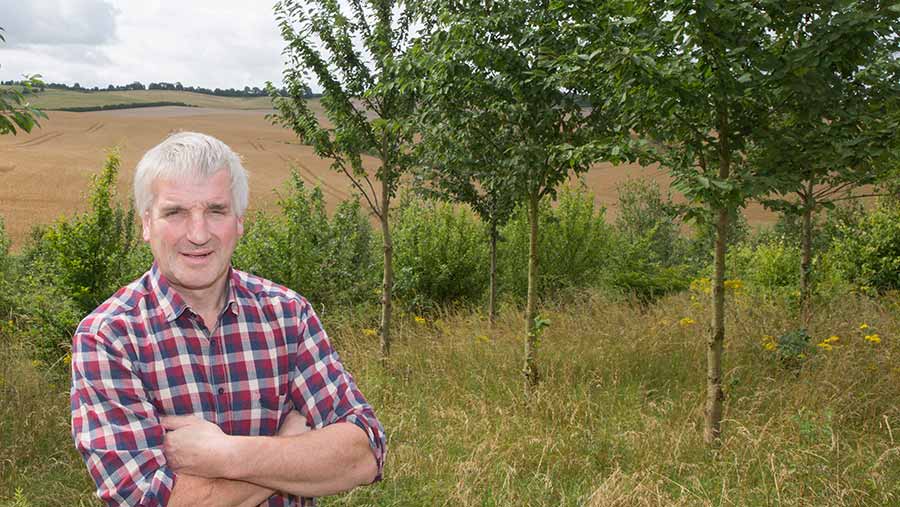Farmer Focus: East Anglia may become OSR “no go area”
 Robert Law © Tim Scrivener
Robert Law © Tim Scrivener At the start of this month, Thrift Farm hosted an NFU breakfast meeting as part of the consultation that the union is now undertaking among its members.
There was a wide range of views expressed by the audience on how they saw future agricultural policy outside the EU.
It was generally agreed that farming is going to have to do a very big sell to the UK Treasury, explaining why we are such an important contributor to the UK economy and our role as managers of more than 75% of the UK’s land area.
The NFU’s submission to Defra will be one of many. Every other NGO that has an interest in food, farming and the environment is busy consulting and preparing policy documents on what they wish to see post-EU in the UK.
See also: Read more from our Arable Farmer Focus writers
While we will be in the EU for more than another two years, some effects of Brexit have been more immediate: we have seen prices for some commodities take a welcome lift as a result of to weakening currency.
However, there has been a downside, due to the uncertainty created. Environmental stewardship has been one of the first areas to take a hit, with new schemes running for five years – and, in the case of Woodland, 15 years.
Natural England is not signing off any new agreements until it has received guidance from the Treasury over future funding, as these new agreements will extend well past Brexit.
This is frustrating at the farm end, where plans are being made for the next year and growers have already incurred expense in putting together applications.
Away from Brexit, farming continues as the calendar rolls on. The rams have gone in, in preparation for a post-Christmas lambing, stubble turnips have been drilled and have emerged.
A late harvest continues with weather interruptions. A policy to stick with putting all our winter barley area into the Carat variety for about the 12th year has paid off in terms of both quality and yield and we will continue with this variety for 2017.
We will be halving the area that we sow to seed crops of forage rape and turnips in 2017, as these have been extremely disappointing in 2016.
This is in line with many oilseed rape crops in East Anglia, which is persuading many growers to drop it for 2017 and could virtually make the East a no-go area for this crop.
Robert Law farms 1,700ha on the Hertfordshire, Cambridgeshire and Essex borders growing cereals, mustard, a range of forage crops for seed, sugar beet, up to 200ha of catchcrop stubble turnips and 300ha of grass supporting a flock of 2,500 ewes. All land farmed is in environmental stewardship schemes. He also manages 500ha of sandland in Nottinghamshire.
